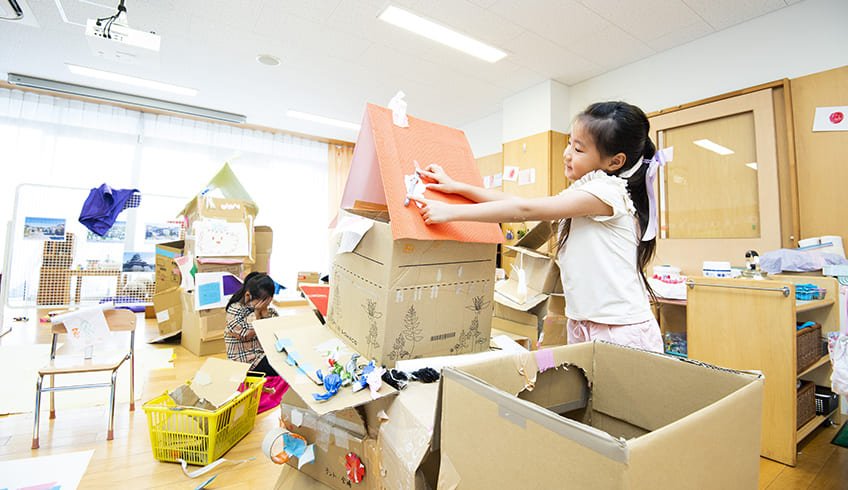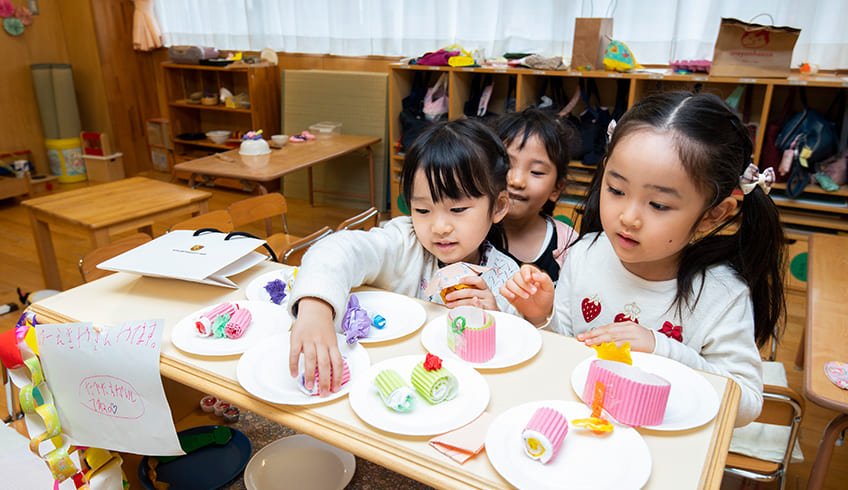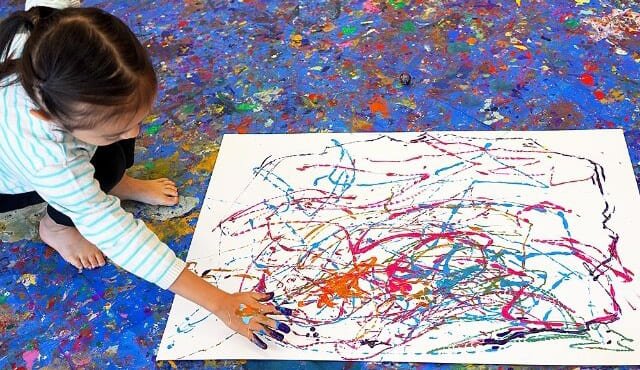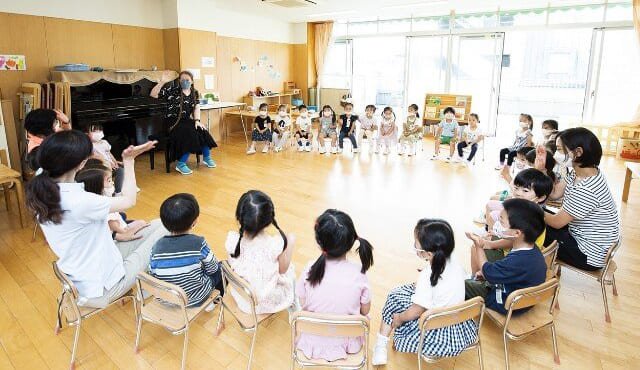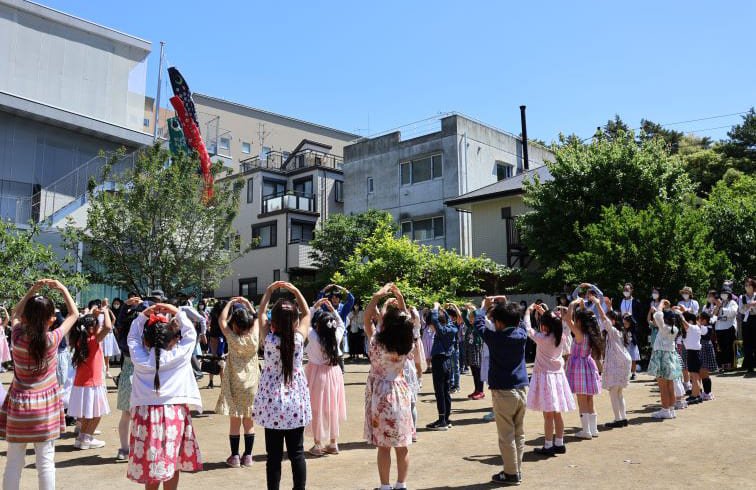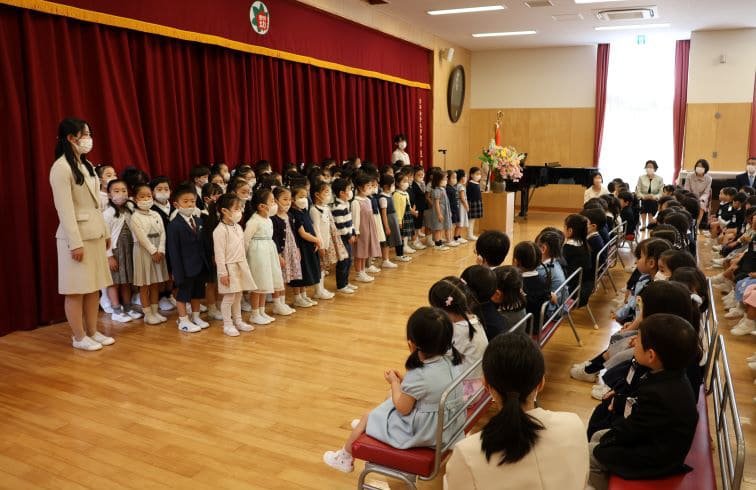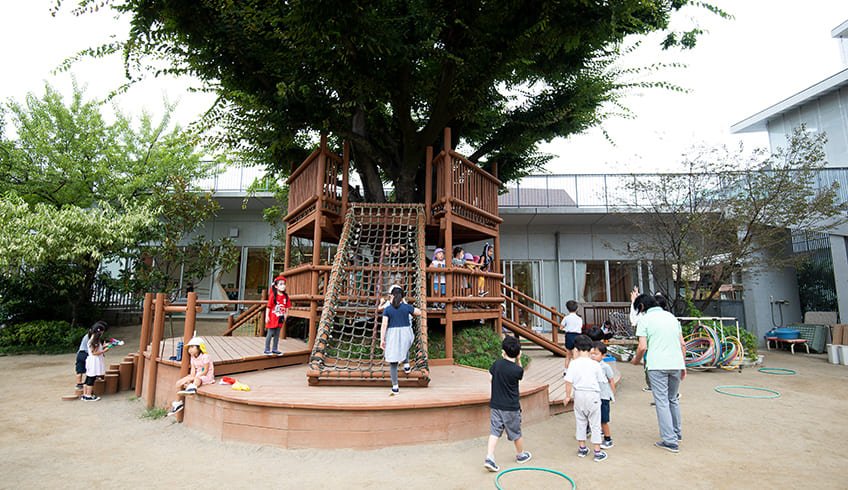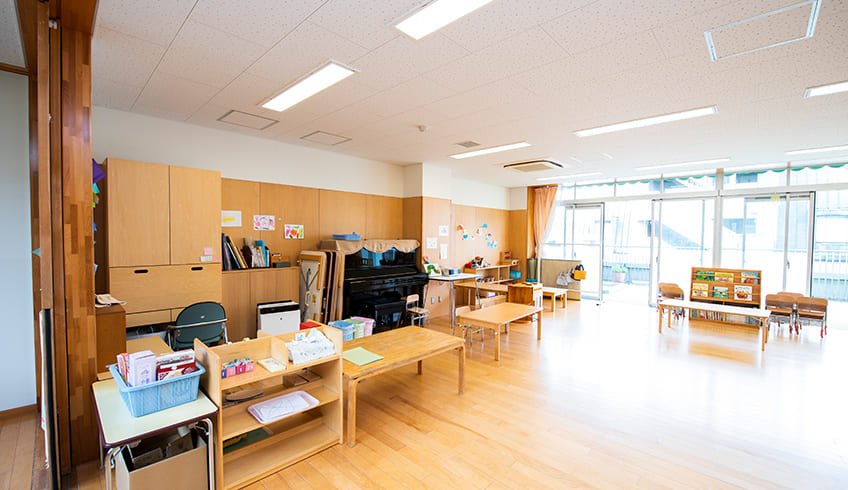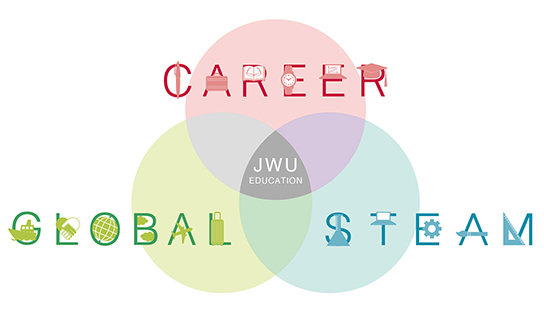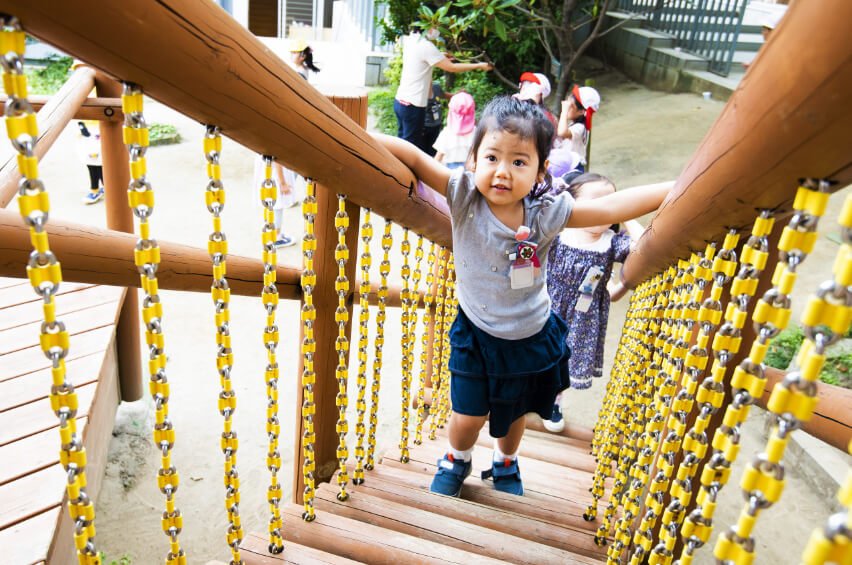
Objectives
- Children who are healthy, cheerful and energetic
- Children who interact with things in a lively manner and are able to feel the joy of creative ingenuity
- Children who are able to recognize each other's good qualities and cooperate with each other in a friendly manner
- Children who are self-motivated, do things on their own, and persevere to the end
Education at Homei Kindergarten
Play-based education
Contact with objects
There are many objects in the kindergarten. By selecting, using and combining objects according to play, children’s ability to think and concentrate will be cultivated.
Finding their own ways of playing
Children will feel and learn many things through finding and enjoying their own ways of playing, such as playing in the mud and role-playing.
Playing with heart and body
Through play that involves them using their own hands, feet, and other parts of their bodies while feeling a sense of emotion, children will develop honest feelings and a good physical balance.
Cooperating with friends
By playing not only alone but also in groups, children will develop basic communication skills, such as asserting and restraining themselves.
Education with real objects and experiences to foster sensitivity
Expressing themselves physically
Children will learn physical expression through singing, drama, exercises and rhythmic movement. They will also learn about differences in personalities, and the joy of expression.
Using real objects
Children will be familiarized with creative activities in their daily lives by using real musical instruments and tools, and watching cultural activities such as music concerts and puppet shows.
Interacting with nature
An emphasis is placed on interaction with nature in the kindergarten and at the Nishi-Ikuta campus.
Kindergarten’s traditional events
Through traditional events such as play and seasonal activities it is hoped that children will experience a rich sensibility and the joy of creation, which will lead to their comfortable mental growth.
Non-cognitive skills nurtured in play
“Non-cognitive skills” are abilities such as cooperation, perseverance, creativity and communication skills that, unlike academic test scores, cannot be quantified in academic tests, but are important for life. In order to fully nurture these skills, Homei Kindergarten provides education that allows children to exercise their ability to think independently through play.
Distinctive education
STEAM education
Children will interact with nature in their daily play and activities such as sweet potato planting and digging at Nishi-Ikuta campus, and observe insects and water with a microscope to think about the nature and mechanisms of things around them. In addition, children will enjoy drawing freely with paints in a modeling workshop led by a professor emeritus from JWU. They will also develop information and logical thinking skills through the use of educational toys and tablet terminals.
Global education
Once a week, an English teacher rotates through the three grades and interacts with the children of each grade in English for a day. The teachers play with the children, eat lunch together, and enjoy English greetings, songs, dances, games, and other activities together. The kindergarten also offers an exchange program with international students from JWU and a Homei Summer School program in English for children in higher grades upon request.
Career education
Through field trips and events, opportunities are offered to listen to talks from professionals about their respective jobs and areas of expertise. Efforts are also made to bring children into contact with various professions and society on a regular basis through involvement with educational interns and by shopping in the community.
School life
A day at Homei Kindergarten
- 9:00 Arrival at kindergarten: Arrival at school with their parent or guardian
- 9:30 - Playtime: Children play as they like with friends and teachers
- 11:00 - Gathering: Class- or grade-based activities
- 12:00 - Packed lunch (box): Children eat a packed lunch prepared by parent
- 12:40 - Playtime: Children play as they like indoors or outdoors.
- 13:10 - Gathering: Children watch a picture story show or look at picture books with others
- 13:30 - Leaving kindergarten: Children go home with their parent or guardian
Annual events
During the three years from the admission ceremony to the completion ceremony, children experience a variety of events, all of which stimulate their curiosity and help their development. Through these events, children interact with others and accumulate invaluable experiences.
1st term
- April: Kozakurakai annual meeting, guardians’ meeting, founding anniversary gathering, admission ceremony
- May: Health checkup, sweet potato planting (5-year-olds), field trip (all grades), Children's Day gathering
- June: Gathering to commemorate the birth of Jinzo Naruse
- July: Summer education (5-year-olds)
- August: Summer vacation
2nd term
- September: Guardians’ meeting
- October: Sweet potato digging (5-year-olds), field trip (3- and 4-year-olds), sports day
- November: Field education
- December: Winter vacation
3rd term
- January: Social gathering
- February: Elementary school class visit (5-year-old girls and their parent or guardian)
- March: Completion ceremony, farewell party, Hinamatsuri ceremony (girls’ day)
Facilities
Homei Kindergarten has bright and sunny classrooms, a spacious playroom where children can play freely and spontaneously, and a garden rich in nature with a large tree house. These facilities are designed to enable children to imagine new play activities and enjoy a wide variety of experiences.
Tree house
Climbing up and down, with lots of excitement! The tree house stimulates children's curiosity and their enjoyment.
Classroom
There is a role-play area and a place for making things, and children can enjoy their own favorite games.
Picture book room
A collection of 2,500 books! New picture books are added every year. In a calm and comfortable space, children can freely choose and read their favorite picture books and seasonal picture books.

